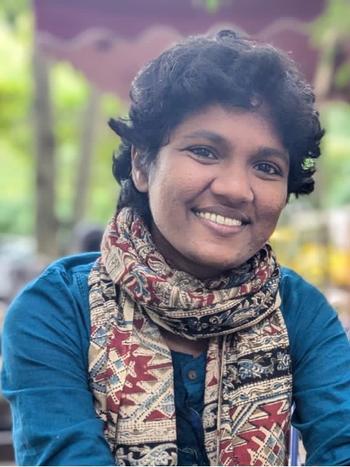Bivitha Easo (Alliance University, Bengaluru)
Early Career Fellow in Research Area 1: "Competing Communities"
January–June 2025
(Un)Translated Christianities: Transtemporal Worlds in Malankara Nasrani Narratives
The Malankara Nasranis (debatably known today as Syrian Christians) of Kerala, considered one of the oldest Christian communities in the world, offer a unique 'problem space' (Scott, Conscripts of Modernity) to critically deconstruct a particular aspect of the co-constitution of colonisation and Christianisation, which turned various indigenous Christians into the internal enemies of the emerging Christendom, who were compelled to translate their differences into a universal Christianity through inquisition and conversion. The project examines how a 'vernacular' community, in this case the Malankara Nasranis, imagined and laid claim to a transregional and transtemporal non-western European cosmopolitanism in the 19th and 20th centuries as an anti-colonial Christian strategy in order to conceptualise their untranslatable differences as a site of resistance, as they faced both Western Christianisation and Hinduisation in the interstices of the 'colonial Christian' and 'native Hindu' coercions. However, the project's aim is to also complicate and problematise the contemporary manifestations of this imagined Syrian Christian community and their emerging critical subjectivity, as their greater claims to a 'pure' Christianity and 'real' native status ironically produced its own internal 'others' during postcolonial times, as Syrian Christians competed with fellow communities for resources. In this strategic yet problematic translation of an open community of heterogenous Malankara Nasrani into homogenous and endogamous Syrian Christians with Apostolic and Brahminic origin claims, a new category of non-Syrian Christians were imagined and paradoxically turned into Christianity's 'internal other' while Muslims became their 'external other'. This project constructs an archive that cuts across linear timelines, genres and disciplines to critically represent the narratives that imagined this emerging global subjectivity for a community in crisis.
Bivitha Easo is Assistant Professor in the Department of Language and Literature at the School of Liberal Arts at Alliance University, Bengaluru, India. She holds a PhD and MPhil in Comparative Literature from the University of Hyderabad. Prior to Alliance University, she was Guest Faculty at the Centre for Comparative Literature, University of Hyderabad. She was one of the consulting editors for Oxford University's Malayalam-English bilingual dictionary project and is an aspiring translator between English and Malayalam. Her academic interests focus on Christianity and community studies, minority discourse, children's literatures and vernacular print cultures. Her research articles have been published in journals and edited volumes. Her current research explores vernacular Christianities and community formations in the South Indian context.
